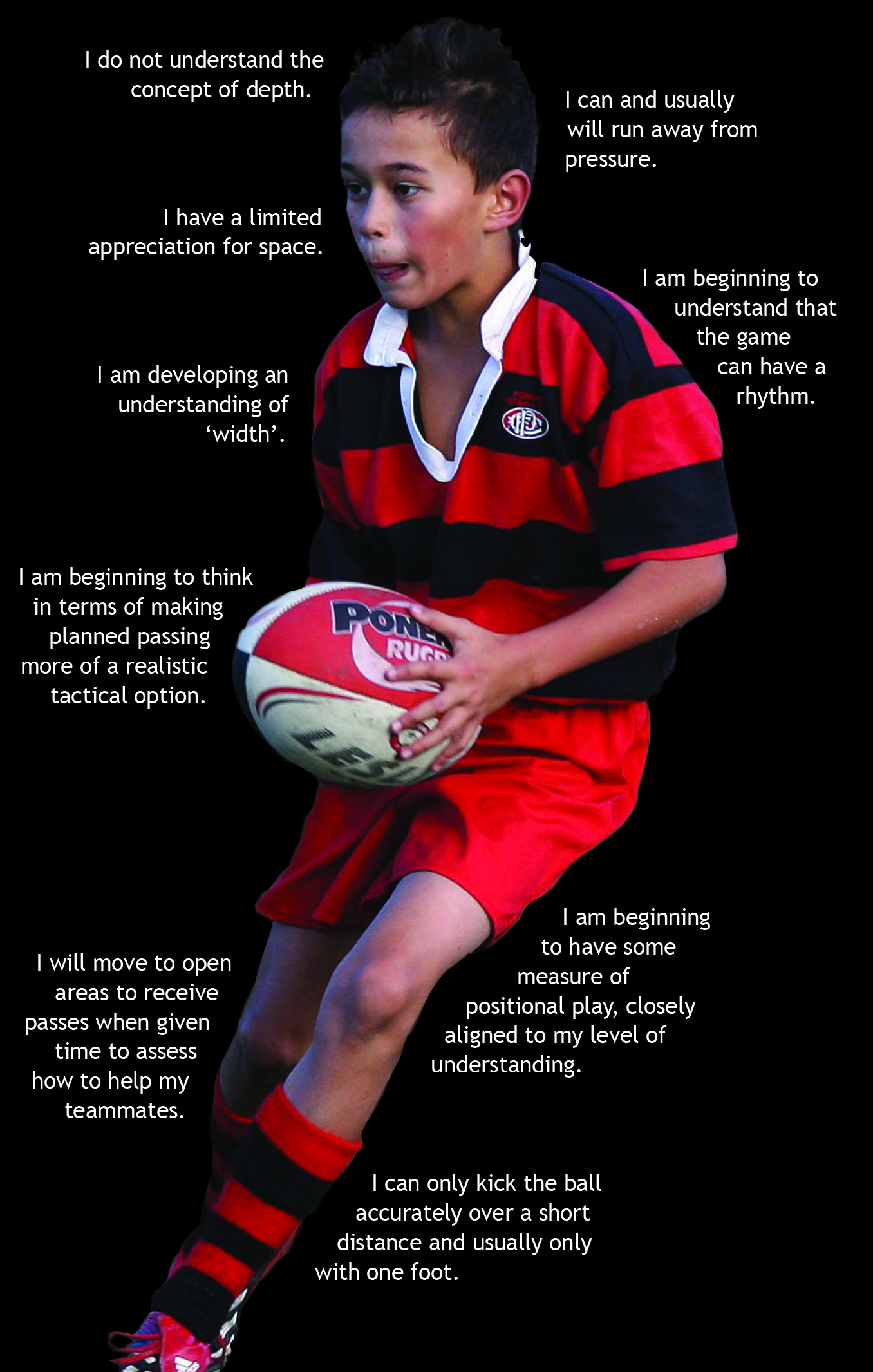- Rugby Toolbox
- The Game
- Small Blacks Rugby
- U11 - What Can I Do?
- How to coach Rippa Rugby
- Game Management for Small Blacks
- Little Kenj
- Balance is best
- Small Blacks Warm Up planner
- Child Protection
- Practice Plans
- Small Black Charter
- U7 - What Can I Do?
- U11 - What Can I Do?
- U13 - What Can I Do?
- Keeping Our Small Blacks Safe
- Planning a Practice
- Cultural Awareness
- Score Blowouts
U11 - What Can I Do?

Seven, eight, nine and ten-year-olds are still very sensitive young people and still very self-centered, but their coordination, balance and agility are developing rapidly. A growing technical range allows some players to be quite complex in their individual play.
In the Learning Rugby grade, players start to identify themselves with a “team” and will be motivated to attend rugby practices and repetitive practice activities.
Improving and refining individual play through technical repetition is an important objective of this grade and small-group decision-making can be expanded.
LEARNING RUGBY U8–U10
Special guidelines are needed for these players including special rules (kicking, scrum and lineout modifications), and special equipment (size 3 balls).
- Coordination and body control at this age is improving rapidly so it is an appropriate time for lots of skill development. It is also a time where peer groups become increasingly important; acceptance or rejection can be major behavioural factors for you to consider. The good news is they are able to stay on-task longer due to an increasing attention span.
- Communicate with your players effectively. Learn how to talk to your players. Don’t be a ‘screamer’ because the kids don’t respond well to being put down by their coaches. They have other things to do. Sarcasm is really the worst enemy you can have. If you’re a coach, don’t try to be a comedian. Don’t try and poke fun at your kids by using sarcastic remarks. The kids, for the most part, won’t respond to that.
- Don’t try to be the players’ best friend. They already have lots of friends. Your job is still to be an educator. You can talk to them, listen to them, and motivate them, but don’t think for a second that you’re on the same level with the kids.
- Every coach on every team has to have some sort of team discipline. The hard part is to try to determine what kind of reprimand should be handed out if a kid refuses to comply with one of these standards e.g. the coach says that if you’re late to practice, then you sit out the first half of the game. No excuses accepted. Are you going to deliver? What about the kids who start in the second half who weren’t late? All coaches have certain rules and expectations that the kids on the team will follow those rules. Have the guts to enforce your rules if they’re broken by a player. That’s your job. Just make sure the rules are fair.
- Always remember that fun is definitely part of each game and practice! If you run your team into the ground during gruelling practice sessions and never let them have a chance to smile, relax, or blow off some steam, you’ll soon discover that you have transformed “play” into “work” for your players.
- Teach and enforce sportsmanship. Assume that the kids on your team do not know or understand what this concept means.
- As the head coach, always be in command! That is, always present yourself as the authority figure of the team. Be the teacher of the team, but not the lieutenant commander.